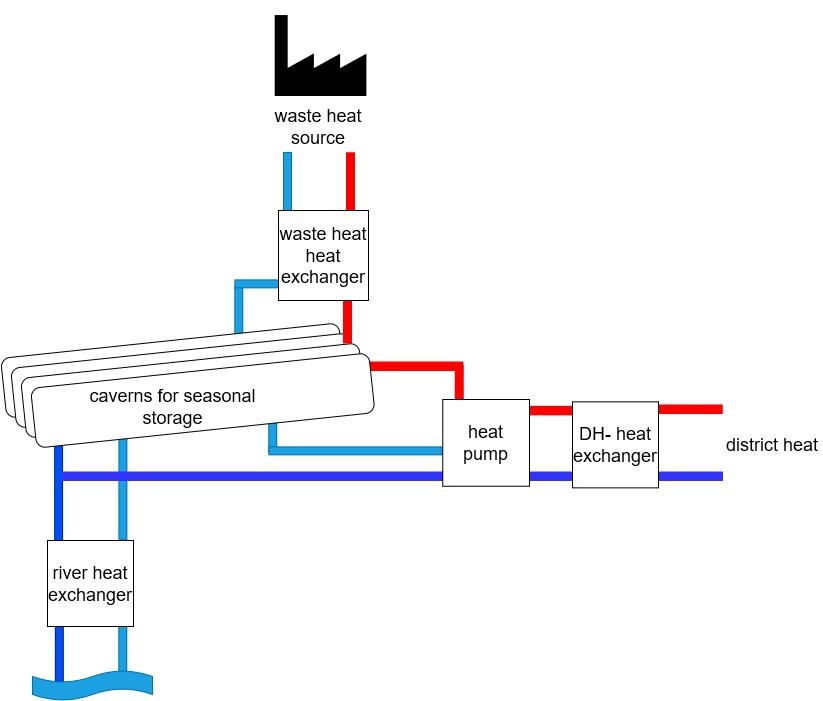Context
The use of urban energy storage systems is an important element for a successful energy transition.
The objective of the project CityStore was to investigate main research and development requirements to achieve optimized planning and implementation of urban energy storage systems as part of an integrated energy system.
A wide range of technologies and applications are available as energy storage solutions at the urban level; optimizing these solutions and options requires first to know which technologies are relevant and can be used for urban applications and then to understand what the demand and potential of the individual storage technologies are.
Aim and Scope
Part of the CityStore project consisted in pursuing an innovative approach to the spatial localization of storage requirements and potentials.
The first step was to divide the most promising technologies into four storage categories: Electricity storage (ELC), heat storage (HEAT), gas storage (GAS) and P2X technologies.
The next step was to evaluate specific challenges and requirements as well as to identify relevant storage technologies and characteristics. This resulted in an initial assessment of a possible operation of cavern storage for district heating in Graz without thermodynamic simulation of the rock.
Method
AIT was the consortium leader and was responsible for the identification of relevant storage technologies for cities, the analysis of the selected energy modeling tool for the use of storage technologies by surveying stakeholder requirements, a model-based investigation of storage applications using two case studies, and a simulation of photovoltaic systems with battery storage using stochastic optimization in Weiz and one in Graz on the topic of seasonal cavern storage for district heating.
Process for identifying relevant technologies
Schematic of the simulated cavern storage system
Result
The results of the project and research enable optimized planning and implementation of urban energy storage systems, allowing for focused investment in energy infrastructure under the implementation of (local) climate and energy targets.
![[Translate to English:] Integrated Energy Systems Symbolfoto: Das AIT ist Österreichs größte außeruniversitäre Forschungseinrichtung](/fileadmin/_processed_/9/e/csm_Data_Driven_optimization_187134658_iStock_0d7c94011b.jpg)




